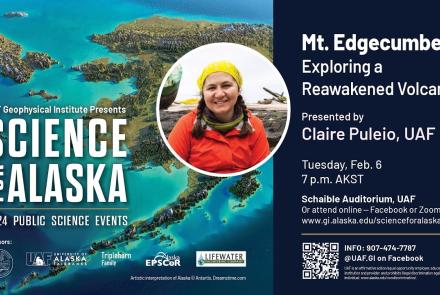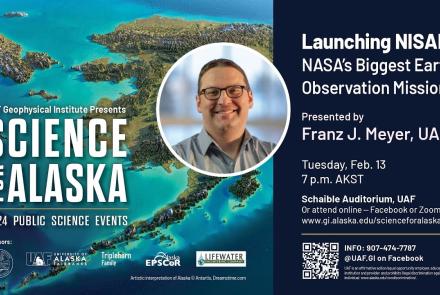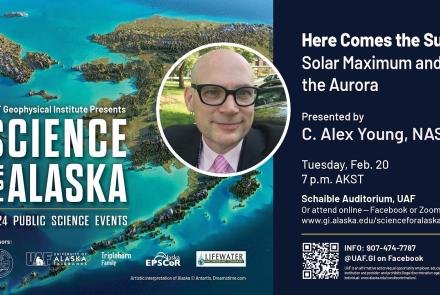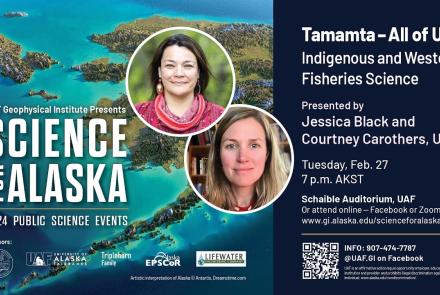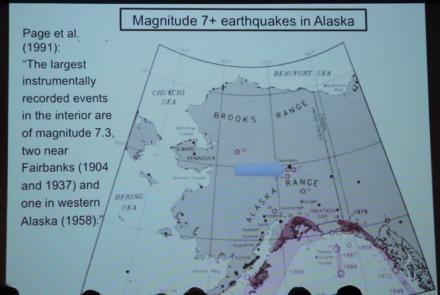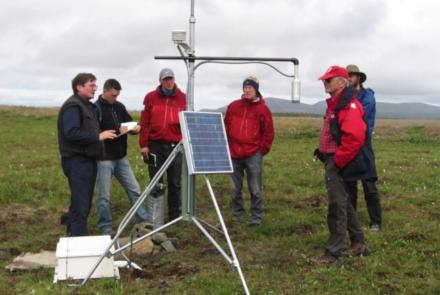Beyond finding coffee: GPS versatility in science and society

Alexandru Lapadat, Ph.D. Student
UAF-GI
Use of the Global Positioning System, or GPS, has become deeply embedded into civil life. Paired with mapping applications on smartphones, we rely on GPS to orient us in places near and far – be it to navigate traffic or find the best coffee. However, GPS features go beyond the elemental need of placing us on a global map or synchronizing the global economy – it’s become a Swiss Army knife in science.
GPS satellites send their signals from about 20,200 kilometers (12,500 miles) above the Earth. Traversing the atmosphere and bouncing off of structures, trees, or the ground, the signals recorded by scientific GPS receivers capture valuable information about their journey, in addition to merely providing a position. We will explore how GPS signals characterize ionospheric activity, earthquake and volcanic processes, or local snow depth, and venture into real-time hazard early warning applications.
To join this talk, register on Zoom or watch live from the UAF or Geophysical Institute Facebook pages.

